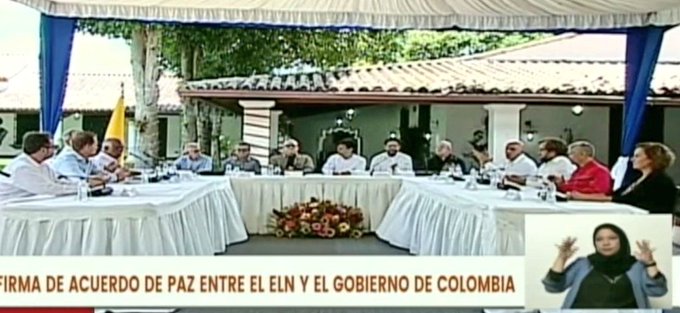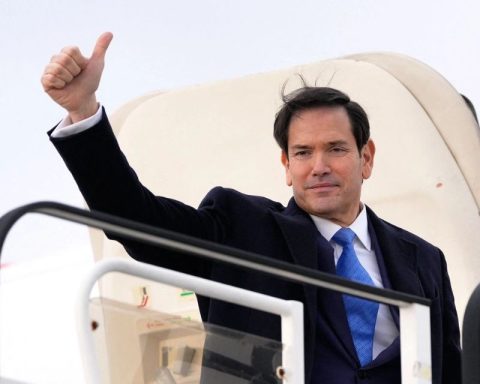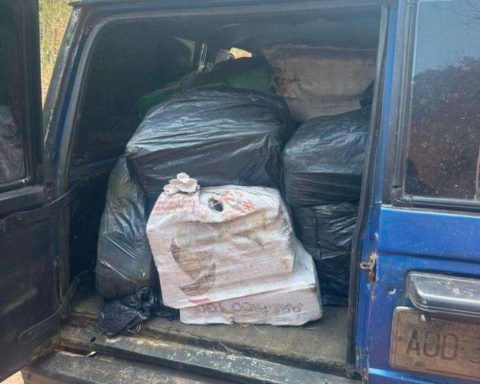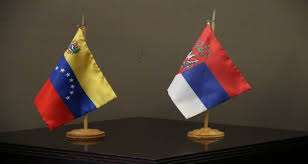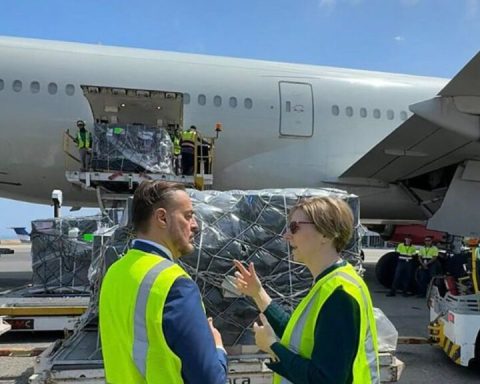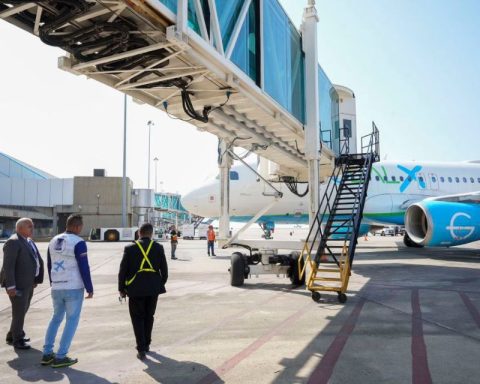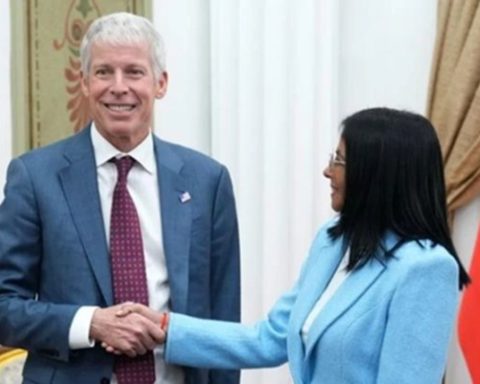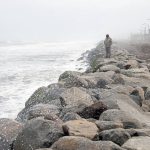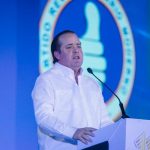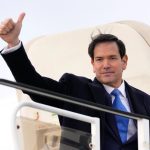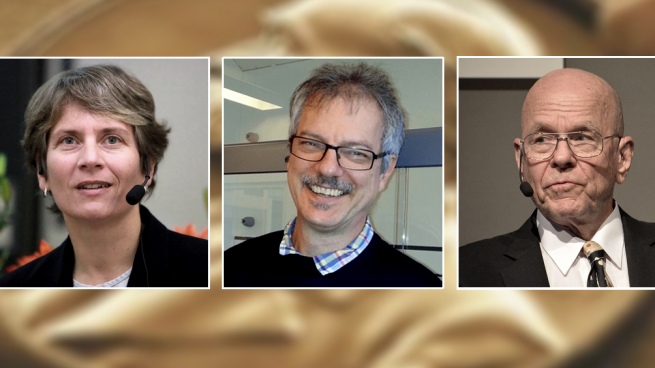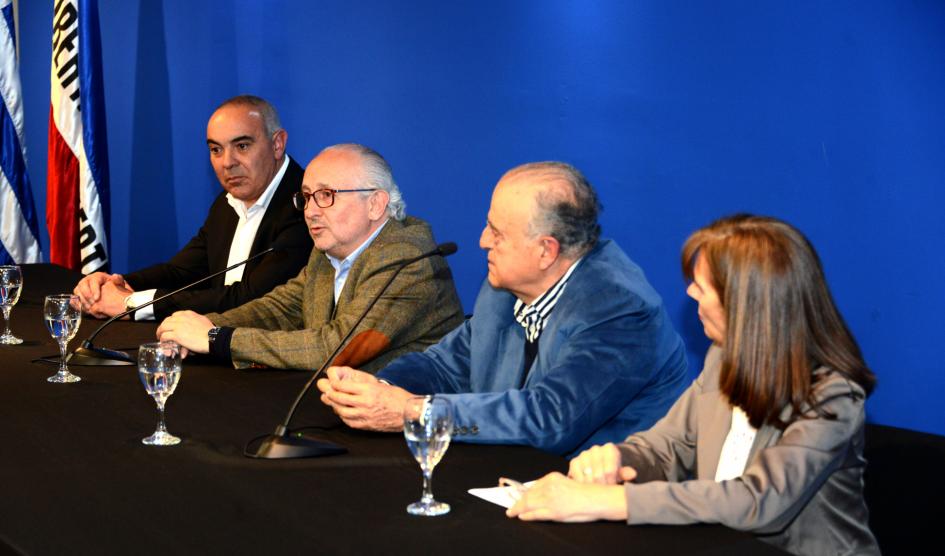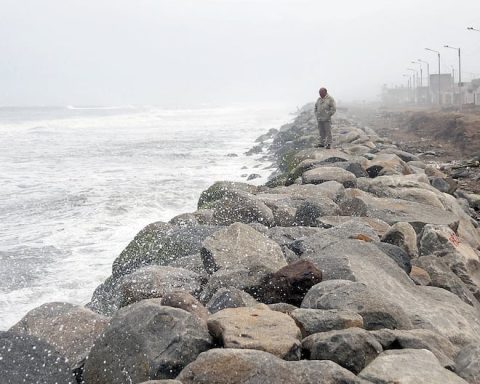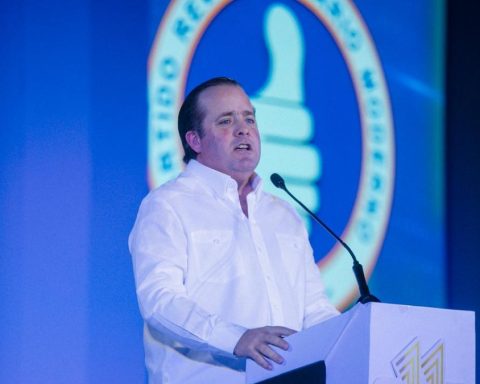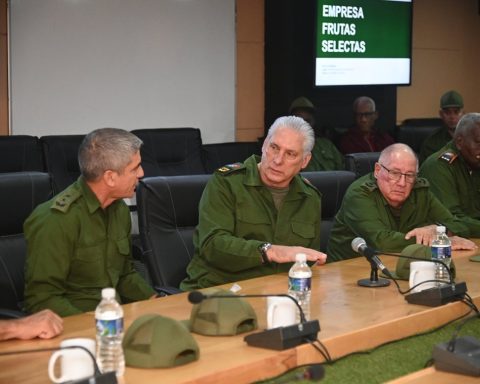After three years, nine months, the representatives of the Colombian State and the National Liberation Army (ELN), a group born in 1964, meet again.
The “Restart of the Peace Agreement” took place this Tuesday at the La Casona Aquiles Nazoa Cultural Space, the former official residence of the Venezuelan presidents that remains in La Carlota, Sucre municipality, Miranda. For three hours, Petro and ELN delegates met with representatives from the United Nations, Norway, Cuba and Venezuela.
At 12:49 noon, those attending the meeting moved to a space arranged in the central courtyard of La Casona, from where they read to the media the statement in which they report the three agreed points, which begin by announcing the decision to “reinstate the Table of Conversations with their respective delegations.
The other two remaining points are summarized as follows: resume all the agreements and progress made since the signing of the agenda on March 30, 2016, and announce the reestablishment of the dialogue process after the first week of November.
“For the Government of Colombia and the ELN, the participation of society in this process is essential in the changes that Colombia needs to build peace,” says the statement, which also dedicates a paragraph to thank the guarantor countries (Venezuela, Cuba and Norway), the United Nations Verification Mission and the Catholic Church.
The statement bears the signatures of Iván Danilo Rueda (Colombian High Commissioner for Peace), Antonio García and Pablo Beltrán, first and second commander of the ELN, respectively.
Once the document was read, the signatories and representatives of the guarantor countries left the table so that Venezuelan General Carlos Martínez Mendoza could read a statement in which the guarantor countries expressed their satisfaction “for the decision of the parties to restart the peace talks”. In the document, the three countries agree to act “responsibly and impartially.”
After reading the two communiqués, Antonio García (ELN) approached the table to answer questions from the journalists. García recalled that the dialogue between the Colombian State and the ELN began on August 22, 2012. Those conversations had been interrupted since January 2019 after a car bomb attack perpetrated against a military installation located in Bogotá.
“The new political circumstances in Colombia have made it possible to restart the negotiations; the confidence we have now is that there is a shift in the peace policy,” said García, alluding to the decision of the president of his country, Gustavo Petro, to relaunch the dialogue.
In his turn, Danilo Rueda, the Colombian High Commissioner for Peace, said that this period is one of “co-responsibility of the parties with respect and transparency.” He clarified that Venezuela is not an intermediary but rather a “guarantor” of the dialogue”.
Last September, Colombian President Gustavo Petro sent a letter to his Venezuelan counterpart Nicolás Maduro requesting that the country serve as guarantor in the resumption of peace talks with the ELN.
This dialogue process was interrupted on January 18, 2019 when the then president of New Granada, Iván Duque, announced the breakdown of talks with the ELN due to the car bomb attack perpetrated against the General Santander Cadet School located in Bogotá. The action caused the death of 18 people and injured 68, according to official versions.
Upon winning the presidency of Colombia, Petro decided to resume the dialogue and by virtue of that he asked the Venezuelan government to become a guarantor.
In this regard, the Venezuelan Head of State accepted the approach and ratified his “unwavering commitment to peace in Colombia and all of our America.”
In pursuit of this reestablishment of the dialogues, Gustavo Petro signed a decree that allows “ELN negotiators to reconnect with their organization; suspend arrest and extradition orders to try to build peace talks and stop being an insurgent guerrilla in Colombia,” reported Iván Velasquez Gómez, Colombian Defense Minister, on August 20.
The Colombian ambassador to Venezuela, Armando Benedetti, clarified that the suspension of the arrest warrants covered “only the negotiators, not the members of the ELN.” He referred that it is “the first step, not the last of a peace process.”
In 2013, the government of then President Juan Manuel Santos began exploratory meetings with the ELN, for which he appointed Fran Pearl. In turn, the guerrilla was represented by Antonio García and Pablo Beltrán.
Developing news…
